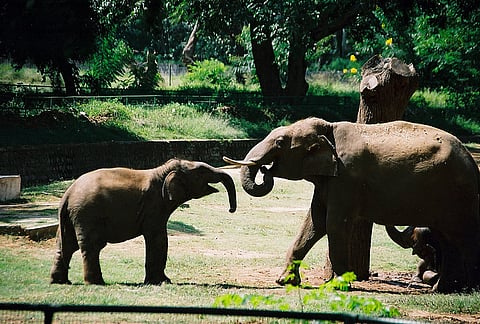

BENGALURU: Habitat reduction and increased infrastructure works have affected the natural gene pool of Asiatic elephants, stated a study shared by researchers from the National Centre for Biological Science (NCBS) and Indian Institute of Science (IISc) on Saturday.
They also noted that reduced migration of elephants is also affecting their gene pool.
In the study -- “Divergence and serial colonisation shape genetic variation and define conservation units in Asian elephants” published in Current Biology, the researchers have uncovered new insights into the genetic history of Asiatic elephants in India.
The research reveals the existence of five genetically distinct populations of Asian elephants in India more than previously thought. The research team included Prof Uma Ramakrishnan’s group from NCBS and Prof Raman Sukumar from IISc.
India is home to 60% of the global population of Asiatic elephants, found across South and Southeast Asia. But today, their habitat is fragmented, surrounded by farmland, human settlements, commercial plantations and linear transport infrastructure.
This has resulted in widespread and often severe human- elephant conflicts. Despite their ecological and cultural significance, studies on the population genetic structure, diversity and demographic history of these elephants critical for identifying conservation and management units have been limited.
“The identification of these five genetically distinct populations underscores the need for region-specific conservation efforts,” the team pointed out. The research team is also planning to develop a genetic toolkit based on DNA extracted from elephant faeces.